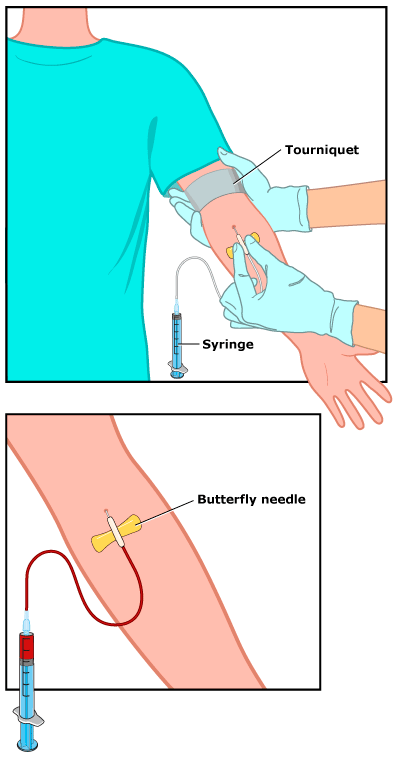Blood Test: Estradiol
Article Translations: (Spanish)
What It Is
An estradiol test measures the level of the hormone estradiol in the bloodstream. Estradiol plays an important role in sexual development: It's the most important form of the hormone estrogen. In sexually mature females, it's produced mainly by the ovaries, and in smaller amounts by the adrenal glands. Estrogen is also produced by the placenta during pregnancy. Sexually mature males have much lower blood levels of estradiol, which are produced by the testes and adrenal glands.
In young girls, estradiol levels are normally low. As puberty approaches, usually between ages 8 and 14, the pituitary gland, located just beneath the brain, secretes two hormones (luteinizing hormone, or LH; and follicle-stimulating hormone, or FSH) that work together to stimulate the ovaries to make estradiol. Increased estradiol production is largely responsible for breast development, genital growth, and changes in the distribution of body fat in pubescent girls.
Because human sex hormones work so closely with one another, doctors often perform the estradiol test with tests for LH, FSH, testosterone (the male sex hormone — but teen and adult females produce some, too), and progesterone (the hormone that prepares the body for pregnancy). Taken together, the results can often provide a more complete picture of a person's sexual maturation status and help doctors diagnose diseases causing sex hormone imbalances.
Why It's Done
Doctors may order an estradiol test if a girl appears to be entering puberty earlier or later than expected. High levels are associated with precocious (early) puberty, while low levels may indicate a delay in sexual development.
Estradiol levels also give important information on the functioning of the ovaries. This can help doctors evaluate menstrual problems, including abnormal bleeding or missing periods. The test may also be used in boys or girls to check for damage or disease of the testes, ovaries, or adrenal glands.
Testing estradiol levels also can be used to monitor the progression of a pregnancy, fertility treatments, or to evaluate menopause symptoms.
Preparation
No special preparations are needed for this test. On the day of the test, having your child wear a T-shirt or short-sleeved shirt can make things easier for your child and the technician who will be drawing the blood.
The Procedure
A health professional will usually draw the blood from a vein. First, the skin surface is cleaned with antiseptic, and an elastic band (tourniquet) is placed around the upper arm to apply pressure and cause the vein to swell with blood.
Then, a needle is inserted into a vein (usually in the arm inside of the elbow or on the back of the hand) and blood is withdrawn and collected in a vial or syringe. After the procedure, the elastic band is removed. Once the blood has been collected, the needle is removed and the area is covered with cotton or a bandage to stop the bleeding. Collecting the blood for the test will only take a few minutes.

What to Expect
Collecting a sample of blood is only temporarily uncomfortable and can feel like a quick pinprick. Afterward, there may be some mild bruising, which should go away in a few days.
Getting the Results
The blood sample will be processed by a machine. The results usually are available within a few days.
Risks
The estradiol blood test is considered a safe procedure. However, as with many medical tests, some problems can occur with having blood drawn, such as:
- fainting or feeling lightheaded
- hematoma (blood accumulating under the skin causing a lump or bruise)
- pain associated with multiple punctures to locate a vein
Helping Your Child
Having a blood test is relatively painless. Still, many kids are afraid of needles. Explaining the test in terms your child can understand might help ease some of the fear.
Allow your child to ask the technician any questions he or she might have. Tell your child to try to relax and stay still during the procedure, as tensing muscles and moving can make it harder and more painful to draw blood. It also may help for your child to look away when the needle is being inserted into the skin.
If You Have Questions
If you have questions about the estradiol test, speak with your doctor.
Note: All information is for educational purposes only. For specific medical advice, diagnoses, and treatment, consult your doctor.
© 1995-2024 KidsHealth ® All rights reserved. Images provided by iStock, Getty Images, Corbis, Veer, Science Photo Library, Science Source Images, Shutterstock, and Clipart.com

